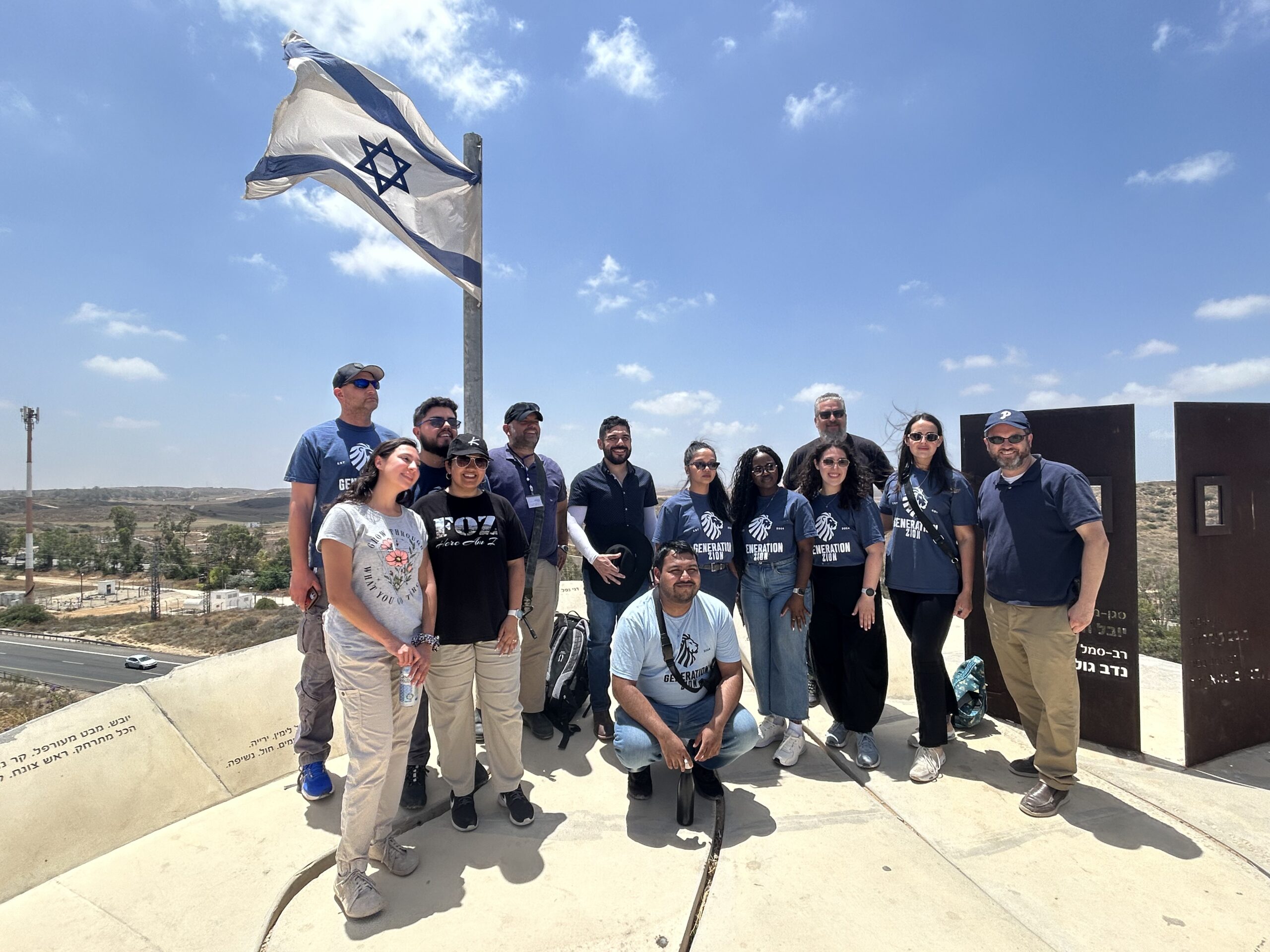As someone who works at Israel365, my job usually keeps me behind the scenes: writing, planning, teaching. But recently, I had the opportunity to join one of our youth leadership trips for a day. These trips bring young Christian leaders from the U.S. to Israel to see the land, meet the people, and experience the story firsthand. This particular trip, though, wasn’t just about connecting to the Bible. It was post-October 7th. It was about trauma, courage, faith, and solidarity.
Our first stop was the Tekuma Car Memorial. Row after row of burned-out vehicles—cars riddled with bullet holes, scorched by fire, still bearing bloodstains. These weren’t abstract symbols; they were real cars that real people had once driven. Some had been on their way to music festivals. Some just going about their morning. None of them made it out. What began as a place for insurance documentation has become something else entirely—a place to mourn, to witness, to remember.
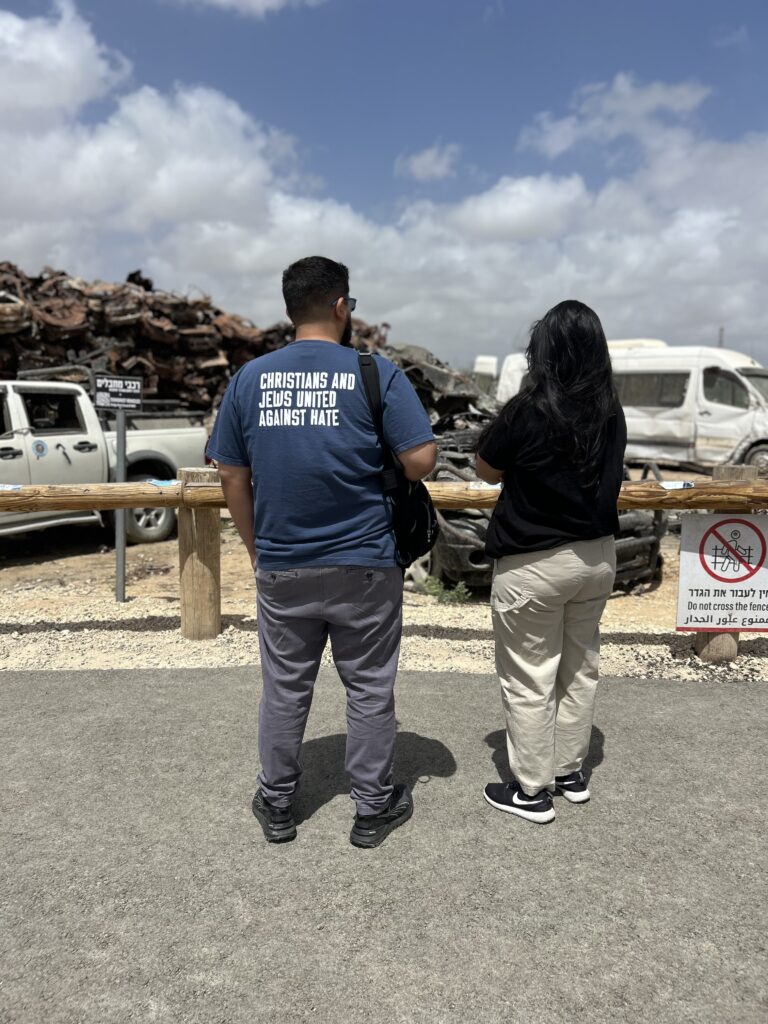
As we walked through the site, a group of IDF soldiers arrived. The contrast was striking: young Israeli soldiers in uniform, and these American Christian students, some visiting Israel for the very first time. Two different kinds of defenders of Israel – one with rifles, the other with prayers and purpose, but both standing in reverence.
From there, we traveled to Sderot. The city’s police station, which became a site of fierce combat on October 7th, has now been painted over with a mural. You can still see the bullet holes and blackened concrete, but there’s also color now, a kind of visual resilience. In the adjacent visitors’ center, we watched a documentary that told Sderot’s story: the constant rocket fire, the trauma etched into everyday life, the fierce will to keep living anyway.
At a nearby memorial, we met a man whose nieces had been sitting in the backseat of the car when their parents were murdered. He stood just steps from where it happened. He spoke softly, without theatrics. He just told the truth. We stood in a circle and held hands. One of the participants offered a prayer – simple, raw, from the heart. We said Amen together.
There were no cameras. No show. Just grief, faith, and solidarity.
After Sderot, we traveled to Kerem Shalom, the kibbutz closest to the Gaza border—so close, you could almost throw a stone into Gaza. It was quiet that day, but not in a peaceful way. The silence felt heavy, like the air itself was holding its breath.
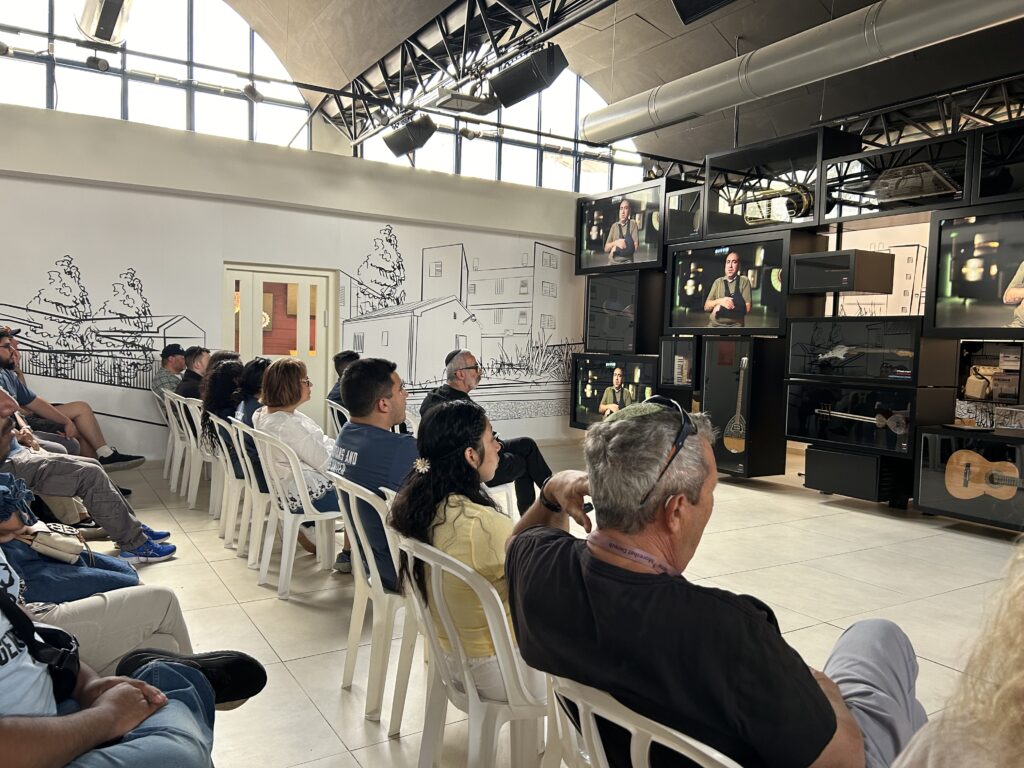
We visited one of the homes that had been destroyed on October 7th. The damage was still visible – walls charred, rooms torn apart, signs of normal life interrupted in an instant. The family had been thrust from their beds that morning. What struck me most was how familiar the house still felt. A place where someone had made coffee, folded laundry, tucked in their children—until the unimaginable happened.
There was something deeply moving about all of us standing there together. Jews and Christians, Americans and Israelis, gathered quietly in the ruins. We listened as someone shared the story of what had happened in that very home. And I watched the group absorb it, not with words or reactions, but with their eyes. Some stood still. Others turned slowly, taking in every corner of the space. No one looked away.
It was a moment of shared witness. A moment where no explanation was needed. Just presence. Just honor.
And then, finally, we arrived at the site of the Nova music festival.

It was surreal. Everyone was quiet, almost dazed. We had all read about what had happened, young people dancing one moment, running for their lives the next. But standing there, in the same fields where so many were murdered, surrounded by such natural beauty, it was hard to comprehend. The trees, the open sky, the dirt paths… they didn’t look like a crime scene. They looked like any music festival in any country. And that dissonance hit us hard.
No one needed to say it. We were standing on sacred ground.
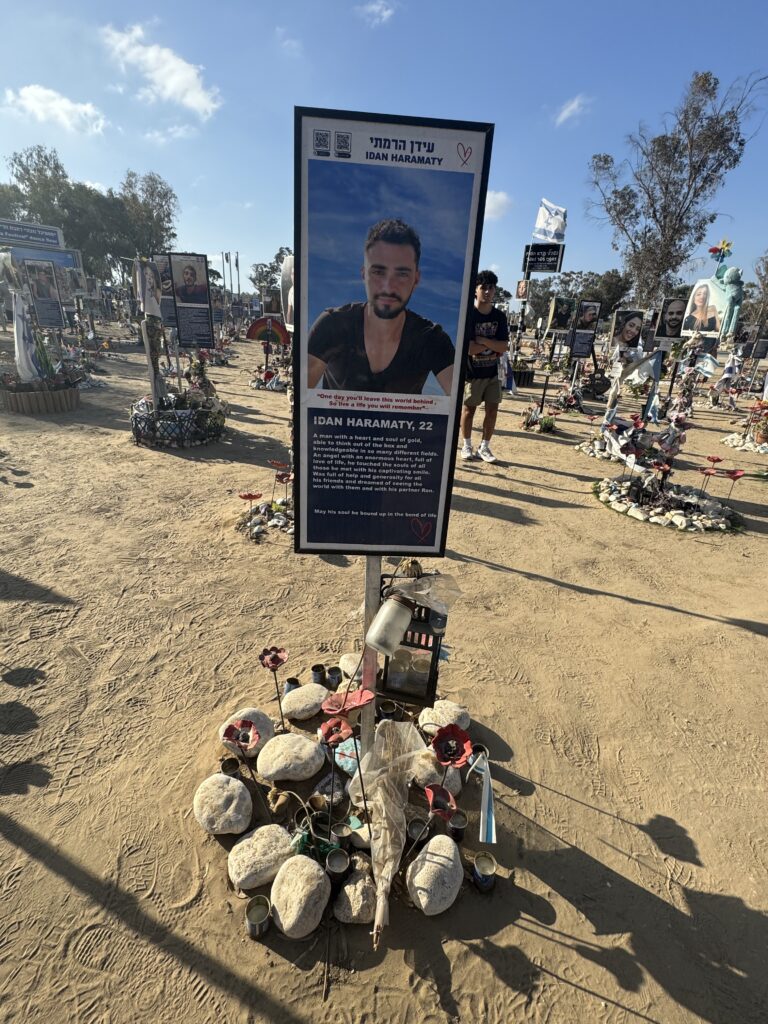
But then something shifted.
On the ride back, Luke Moon, who had joined the trip, stood up and held a spontaneous Q&A. The students began talking about what they were facing back home: antisemitism on their college campuses, misinformation, fear. Luke didn’t sugarcoat anything. He helped them strategize, find clarity, and recognize the power they already had. It was amazing to watch.
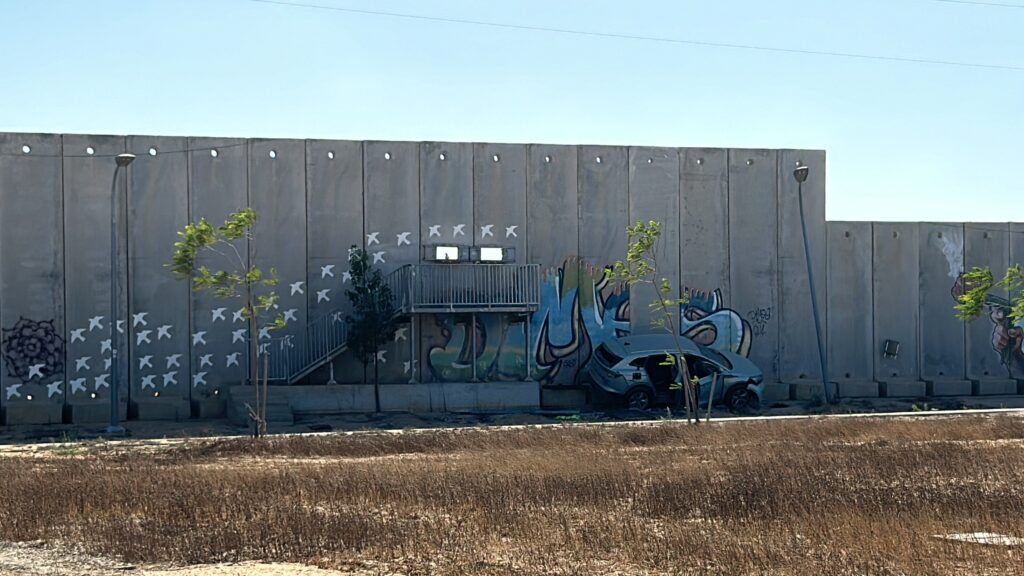
After a long, emotional day, you’d expect everyone to be drained. But they weren’t. They were energized. Buzzing. Ready to go home and do more – to speak louder, stand prouder, and keep showing up for Israel.
And me?
I was deeply humbled. I spend a lot of time creating content about Jewish-Christian friendship. But that day, I didn’t need to write anything. I just had to witness it. These young Christians reminded me what allyship really looks like. What love of Israel really feels like. And sometimes, the most powerful thing you can do is show up with an open heart.



